'Felt a bit redundant': For those volunteering overseas, their lack of skills and experience is a reality check
Every year, thousands of Singaporeans head overseas to offer help in disadvantaged communities, driven by a desire to do good. But these short-term trips can raise difficult questions about their effectiveness and who truly benefits.
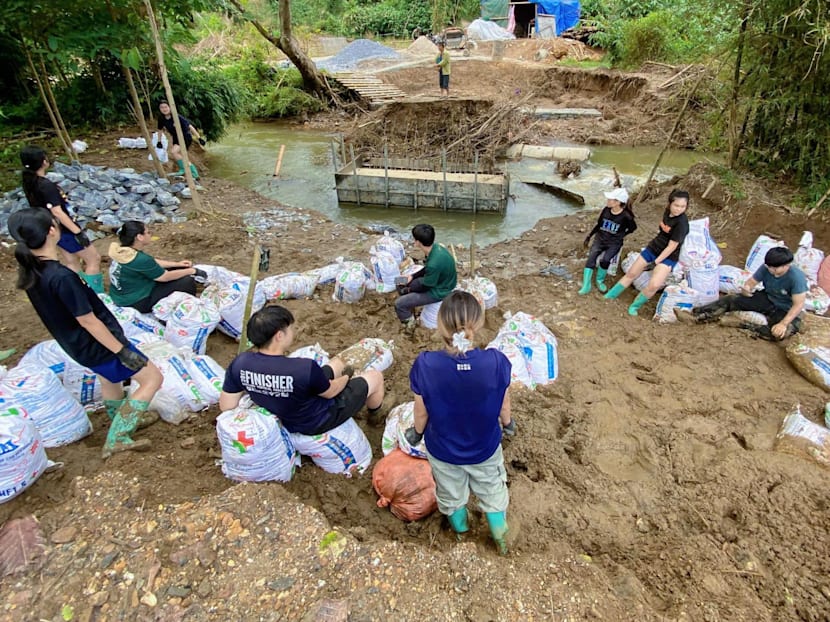
National University of Singapore student volunteers constructing a bridge in Tang Village, Hà Giang province, in Vietnam, in May 2025. (Photo: YESD Vietnam)

This audio is generated by an AI tool.
When Ms Hazel Teo, 24, visited a village near Vientiane, Laos last year, she and about 15 peers from university had high hopes of making a positive difference to some of the disadvantaged schoolchildren who lived there.
Among their plans? Coat the walls of the school compound with fresh paint, and build bookshelves, shoe racks and a water filtration system for the locals.
But it didn't take long for Ms Teo to become disillusioned by the work they were doing.
"Once we had gathered all the materials, some of the locals told us: 'It's okay, we can do it'.
"They were much faster at building these things. In fact, they were the ones who taught us because we didn't have any experience," she said.
"Why were we – people who have barely built anything in our lives – trying to help them build a bookshelf from scratch? It just felt a bit redundant."
Each year, many Singaporeans like Ms Teo pack their bags and venture beyond the country's borders – often to less-developed countries in Asia – for short-term overseas volunteering trips.
These trips – usually organised by schools or non-profit organisations during holiday periods – are part of a larger trend gaining traction in the region combining travel with volunteering work, dubbed "voluntourism".
According to the National Youth Council (NYC), more than 2,400 youths take part in over 100 overseas expeditions annually, mostly across Southeast Asia, China and India.
One of the most established of such programmes is the Youth Expedition Project (YEP), a grant-supported service-learning programme initiated by Youth Corps Singapore.
These trips often promise personal growth and positive community impact.
However, they also raise questions on ethics, and whether they are ultimately effective in achieving long-term change for beneficiaries.
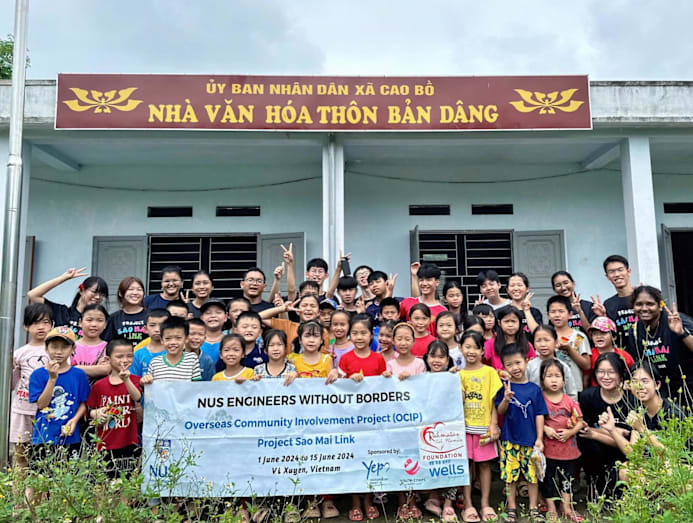
ARE THESE TRIPS REALLY EFFECTIVE?
The direct benefits of "specialised" volunteer trips – such as optometrists providing free eye check-ups for locals who cannot afford them – are often clear.
But the tangible outcomes for trips led by unskilled volunteers may be less apparent.
Indeed, Professor Matt Baillie Smith, a researcher on volunteering and humanitarian work at Britain's Northumbria University, observed that international volunteers often arrive at the country with little development or humanitarian experience.
He warned that the Global South – a term which refers to countries traditionally described as less developed – "is not a playground for young people to be themselves and try out stuff and get it wrong".
For example, while giving basic English lessons to children and constructing dams are common objectives on such expeditions, volunteers often do not possess formal training in these areas.
They may not always be privy to information that would help make their time and work more impactful for beneficiaries either.
When Ms Tricia Wong was appointed the student leader for an overseas learning trip to Cambodia's Baray district back in 2017, she and her peers were instructed to teach schoolchildren the English alphabet, paint the school walls and organise a carnival for them.
However Ms Wong, who was 17 years old then, said she and her peers were not given much "contextual knowledge" of the culture, the students they were volunteering to help, nor what needs they had.
And while she knew other schools and volunteer organisations were scheduled to volunteer for the same community in Baray, she could not initiate conversations with them to coordinate their efforts.
"We had no idea if we were essentially going to redo and repeat what was previously done for these children," she said.
"I was concerned about what comes next. I remember thinking: Are we truly making an impact, or are we just bringing a distraction to their lives?"
I was concerned about what comes next. I remember thinking: Are we truly making an impact, or are we just bringing a distraction to their lives?
Such concerns are not confined to Singapore; around the world, experts have raised alarms about poorly managed voluntourism.
A 2023 report by United Nations Special Rapporteur Mama Fatima Singhateh raised crucial concerns about short-term volunteering.
She warned that volunteering for short periods of time without appropriate skills, training and experience "could contribute to the sense of abandonment and traumatisation repeatedly experienced by vulnerable children" – thereby affecting their ability to form secure attachments.
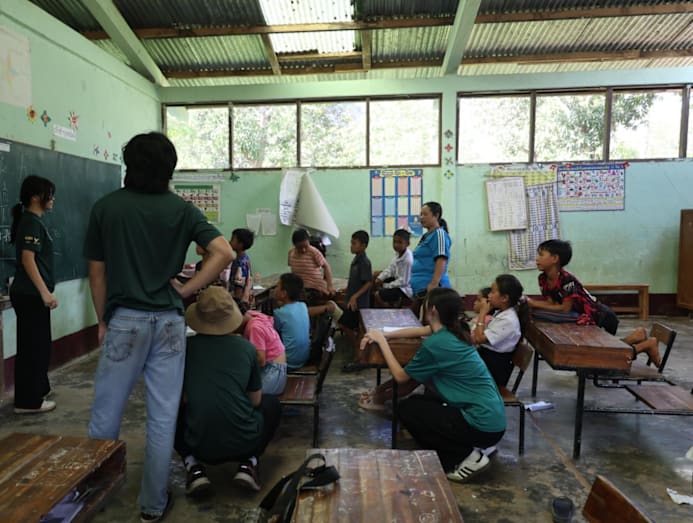
Programmes run out of Singapore adopt guidelines to avoid such risks.
Under an online YEP programme, for example, 18-year-old Mr Kezmond Lee provided videography lessons to Rohingya refugees at schools in Malaysia, operated by non-profit organisation Cahaya Surya Bakti.
"We're not supposed to maintain personal contact," he recalled. "As volunteers, we're encouraged to keep clear boundaries, and only interact with students during class hours through official channels."
WHAT MAKES A TRIP SUCCESSFUL?
Prof Baillie Smith said it is important for organisations coordinating these programmes to provide sufficient education and training before volunteers go.
Organisations also have the responsibility of simultaneously ensuring that the programme supports volunteers' learning and that participants are respectful, he added.
At present, every YEP volunteer is required to complete two e-learning modules which cover cultural social norms and a meaningful overseas volunteering approach.
The Singapore International Foundation (SIF) also mandates pre-deployment orientation for all volunteers, which covers cultural context, safety and deployment guidelines.
Another key factor for a successful trip is a proper needs assessment.
Mr Steve Loh, executive director of the Lien Centre for Social Innovation at Singapore Management University (SMU), emphasised that coordinators must "spend time on the ground, be slow to speak, quick to listen" before designing any outreach or aid strategy.
To that end, YEP requires team leaders to conduct reconnaissance trips to assess project feasibility, build partnerships and review safety.
Mr Loh also champions an "asset-based" approach – building on communities' existing strengths rather than only filling gaps. Supplying immediate needs, he warned, can create dependency and undermine self-reliance.
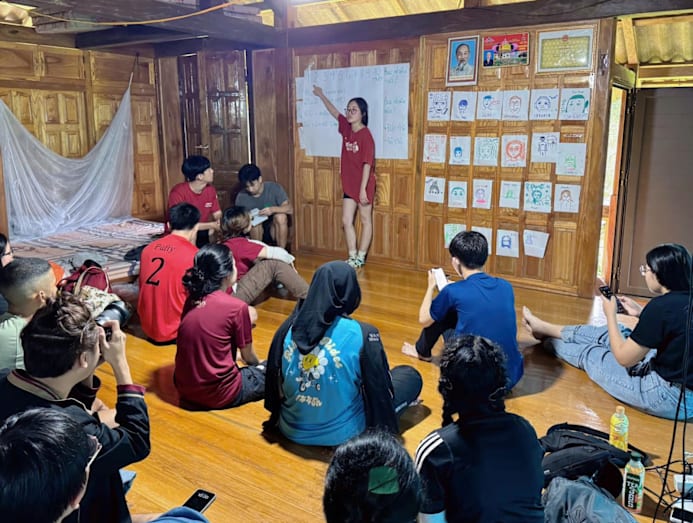
Additionally, experts noted that delivering lasting change often requires programmes that go beyond one-off trips.
Ms Trinh Tuyet, the co-founder of YESD Vietnam, a social enterprise and tour agency that partners with YEP, said her organisation encourages Singaporean groups to return multiple times to deepen their impact.
Ms Christie Lee, director of the programmes division at SIF, said its partnerships are intended to be "long-term, trust-based collaborations" as well.
But the long-term impact of such efforts requires evaluation too.
Mr Loh stressed the importance of distinguishing between outcomes and outputs: Distributing spectacles, for instance, matters less than whether students' academic performance improves as a result of better eyesight.
Assoc Prof Sin Harng Luh, provost's chair at the Singapore University of Social Sciences, added that beneficiary organisations may sometimes feel pressured to overstate needs to secure continued support.
To guard against such pitfalls, Mr Joel Ang, a senior executive at the non-profit YMCA of Singapore, said it collects data to assess programme impact, sends executives to observe teams on the ground, and even reviews partners' balance sheets.
VOLUNTOURISM STILL MEANINGFUL IN OTHER WAYS
Despite this, the non-profits coordinating these trips said that they can still be meaningful.
Ms Trinh of YESD Vietnam said that the presence of the volunteers helps locals feel like "they are loved by someone" and that "they are not left behind in the remote villages".
Mr Ang said this process can be a subtle form of empowerment for locals too.
"Imagine a construction worker who might not be well-educated or well-paid. Now, a group of Singaporean university students looks to him for guidance. He realises he has something valuable to teach. That empowerment is very real," he said.
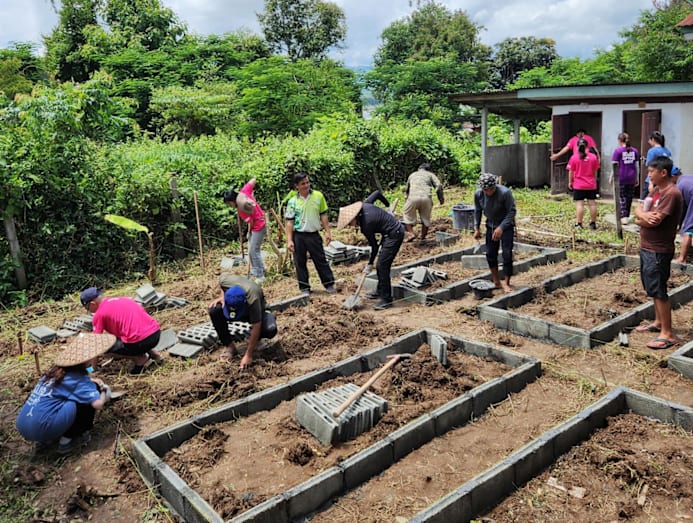
Additionally, some volunteers CNA TODAY spoke to believe the benefits of their work, like providing short-term lessons, should not be measured in academic performance alone.
Mr Erwin Soh, 23, was a two-time volunteer in 2024 and 2025 with Project Sabaidee, an overseas community involvement project to Laos hosted by the King Edward VII hall in the National University of Singapore (NUS).
There, the volunteers taught students and built various infrastructure for a primary school in Sanot Village in Vientiane.
"Our main goal isn't to teach multiplication or English in a few days – it's not possible," said Mr Soh. "We aim to make learning fun, to encourage them to come to school."
For instance, demonstrating a "volcano project" using baking soda and vinegar can "arouse their interest in science", he said.
Ms Trinh from YESD Vietnam concurred: "The long-lasting impact is that volunteers inspire kids to study better. They hear stories of life outside the village and start to dream differently.
"Some tell me they want to be tour guides. Others say they want to study harder so they can visit Singapore. They have bigger dreams for themselves, not just stay in the village and do farming as their parents are doing."
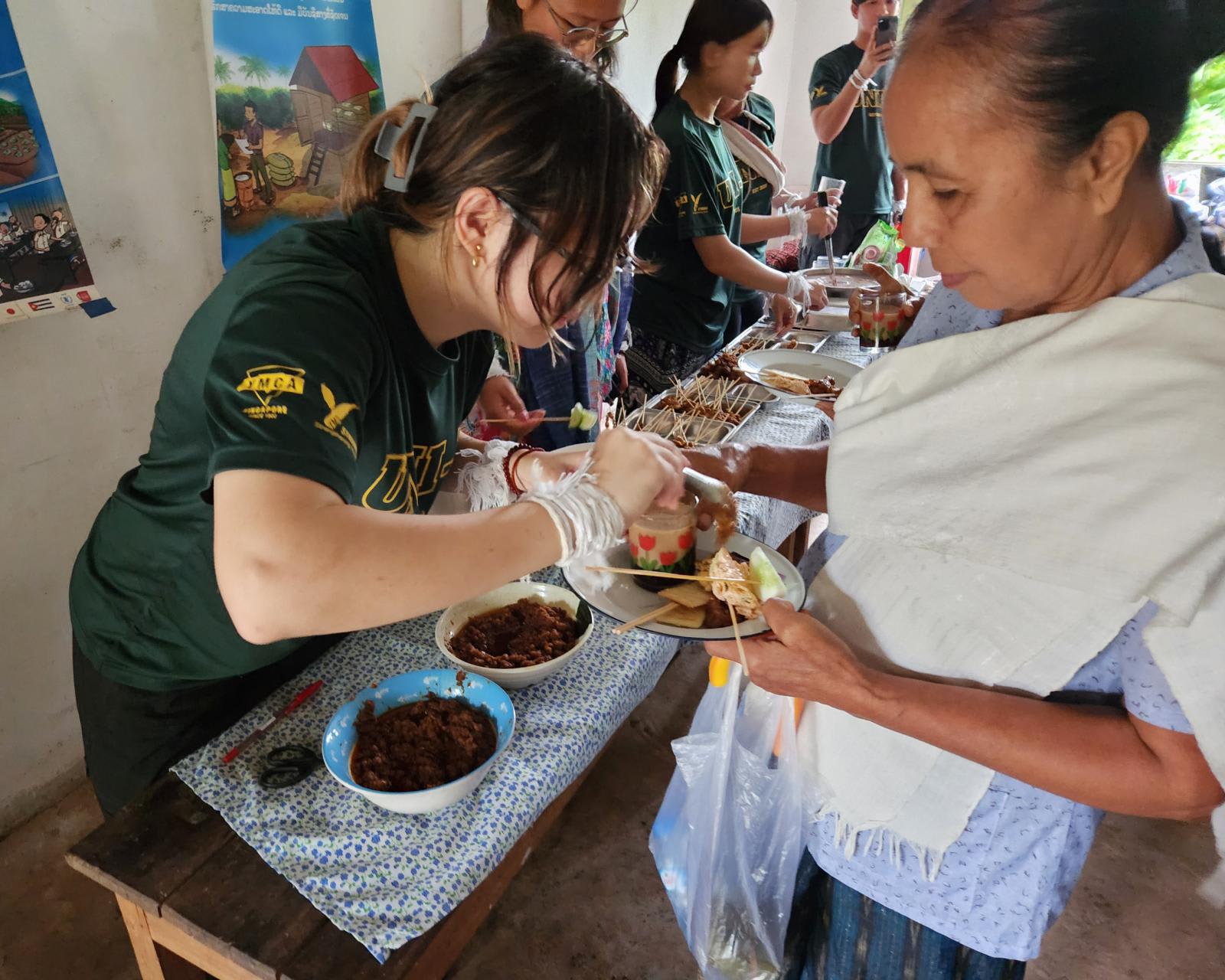
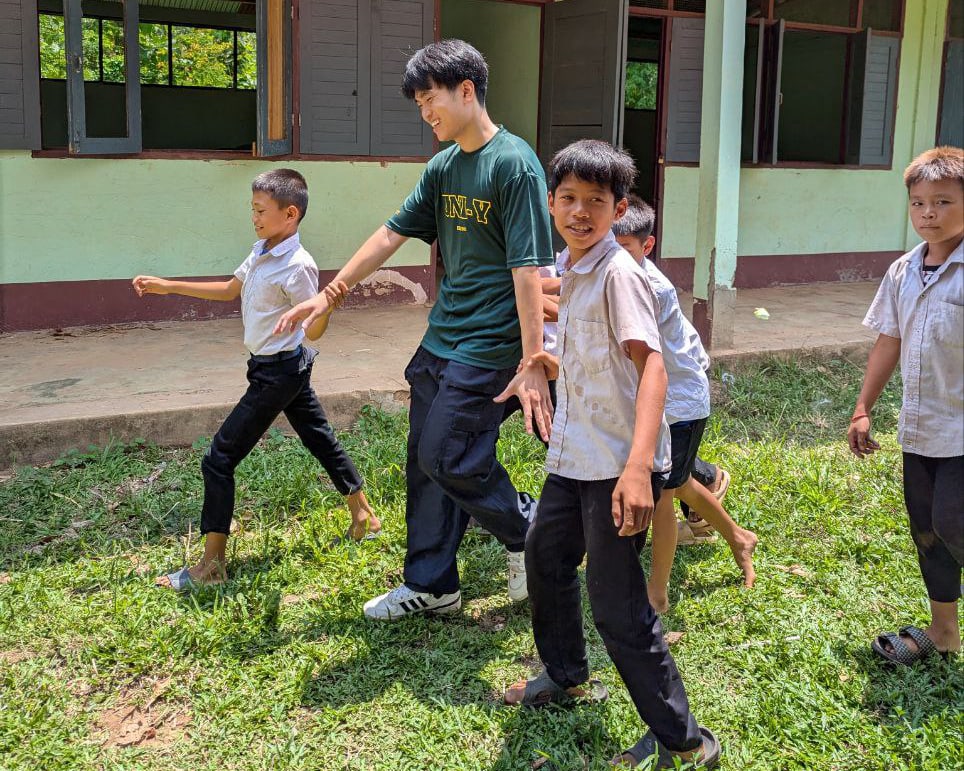
In terms of tangible outcomes, some volunteers are realistic about what makes the biggest difference on the ground: money.
Mr Zander Koh, 21, who was a project director for the NUS chapter of Engineers Without Borders, led a YEP to Ban Dang Village in Vietnam’s Ha Giang province in May 2025.
Over two weeks, his team of 21 volunteers aimed to build a dam, lay 750m of irrigation channels, and run educational activities for children.
The goal of the project was to provide the villagers with better access to water for irrigation.
His team's project cost between S$25,000 (US$19,500) and S$30,000 – of which about half went to construction costs.
Mr Koh told CNA TODAY: "Realistically, the biggest value-add is the funding."
YMCA Singapore's Mr Ang agreed: "In a sense, the teams also help to sponsor the projects. So without (volunteers) coming, the projects cannot be done."
BRINGING THE LESSONS HOME
For Prof Baillie Smith, what volunteers do after returning home is just as important as what happens on the trip.
"If they now understand inequality or the impact of climate change in the Global South, then we need to help them turn that into something local, something sustained," he said.
Youth Corps Singapore told CNA TODAY that it tries to channel this momentum by offering returnees with local volunteering opportunities, leadership programmes and youth-led interest groups.
Mr Ang added that some continue volunteering long-term with YMCA, while others are connected to non-governmental organisations to explore different avenues of service.
Despite its challenges, Prof Baillie Smith stressed that international volunteering can still be a worthwhile endeavour.
"The exchanges and the connections that happen through international volunteering are potentially incredibly powerful," he said.
The exchanges and the connections that happen through international volunteering are potentially incredibly powerful.
"If they're managed well, these connections between people and places – in a very divided and unequal world – can be a really good thing."
For volunteers like Ms Nadya Zaidi, 22, who spent five weeks in Osijek, Croatia as a kindergarten teacher aide, the experience was modest but meaningful.
"I wouldn't say my impact was very large, but I did help out in ways I could," she said.
Her trip was organised by AIESEC in Singapore, a youth-led organisation with university chapters that coordinates such experiences
"Because of the amount of time I spent with the children, I hope I brought them some comfort, love and attention."
Additional reporting by Renald Loh and Deborah Ng.










